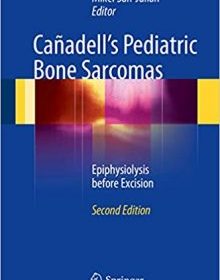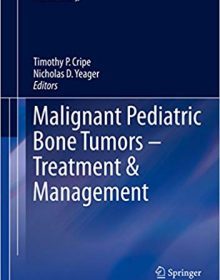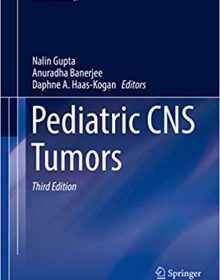The SAGES Manual of Foregut Surgery 1st ed

Medical Books Library for Doctors, Physicians, Surgeons, Dentists, Intensivists, Physician Assistants, Nurses, Medical Technicians and Medical Students
Medical books library



This comprehensive, up-to-date reference on surgery in the neonate presents and explains the latest developments in the diagnosis and treatment of neonatal malformations and surgical pathologies. The coverage includes conditions involving the head and neck and the chest, disorders of the liver and biliary tract, gastrointestinal disorders, genitourinary conditions and malformations, anterior abdominal wall defects, tumors, and various other pathologies. For each condition, the pathogenesis and the most current and innovative surgical, and also medical, approaches are described with the aid of numerous illustrations. Minimally invasive strategies receive particular attention, and tips and tricks that will be of value in clinical practice are highlighted. The book includes a general part covering topics such as embryology, anatomy, prenatal diagnosis, and anesthesia and also provides detailed advice on pre- and postoperative care, with special consideration of nutritional problems. Neonatal Surgery will serve as an excellent guide for all pediatric and neonatal surgeons, whether in training or experienced

This book clearly describes the surgical procedures employed in patients with gastric cancer. The techniques used in the various types of gastrectomy are presented step by step, and the roles of endoscopic treatment and chemotherapy are also discussed. A distinctive practical feature is the provision of accompanying online videos of standard surgical procedures, which will serve as excellent learning aids for novice practitioners and provide ideal teaching material for experienced surgeons. Surgery remains the mainstay in the treatment of gastric cancer. With advances in tumor biology and technical developments, gastric cancer surgery has become more diverse and its outcomes have steadily improved. However, further improvement of certain aspects of surgical procedures and techniques is still required. Surgery for Gastric Cancer will acquaint readers with the state of the art in the field and prove a valuable tool in the quest for optimal practice.

The second edition of this well-received book reflects the state of the art in surgery for malignant bone tumors in children, with a particular focus on epiphysiolysis before excision. With a thorough update, new chapters, a clear presentation of tips and tricks to address complications, as well as supplementary online videos and tutorials, this book addresses the challenges of limb preservation that are posed to the surgeon in this new era of cancer treatment characterized by higher survival rates and longer survival times.
The authors are experienced practitioners of Cañadell’s technique, but the book also explores, thanks to the focused contributions of experts from other fields of medicine, a range of topics from the molecular biology and histological aspects of bone tumors, to the use of imaging techniques and surgical options for epiphyseal preservation.
Abundant illustrations and accounts of clinical results make this book an indispensable guide for orthopedic surgeons and pediatric oncologists and give the book an interdisciplinary appeal to practitioners in more general orthopedics, oncology, pediatrics and surgery.

This book describes in detail current best practice in the diagnosis and treatment of malignant pediatric bone tumors and also discusses other important aspects of management. Clinical assessment, the role of different imaging modalities and choice of biopsy procedure are explained and an individual chapter is devoted to diagnostic pathology. The treatment-oriented chapters offer in-depth descriptions of chemotherapeutic regimens, radiation therapy, limb-salvage options and amputation-related issues and in addition consider the approach to lung nodules, the role of biomarkers, off-therapy monitoring and the treatment of relapse. Psychosocial impacts and needs are addressed and guidance provided on nursing during treatment and rehabilitation following orthopaedic surgery. Closing chapters evaluate emerging therapies and discuss disparate aspects of survivorship. The authors are acknowledged experts and include many contributors from the Nationwide Children’s Hospital, a leading pediatric care facility in the United States.

Tumors of the Pediatric Central Nervous System, Second Edition, provides readers with both medical management and surgical perspectives on the clinical, pathological, and radiological diagnoses and treatment of pediatric CNS tumors. It includes complete coverage of the latest diagnostic and management techniques, state-of-the-art technologies, and trends in the surgical treatment of pediatric tumors.
Highlights of the Second Edition:
Neurosurgeons, neurologists, oncologists, radiation oncologists, and pediatricians caring for patients with tumors of the central nervous system will find this book to be an essential resource that they will repeatedly consult as they strive to enhance patient care.

Pediatric CNS Tumors is a detailed review of childhood brain tumors that offers a biologically based perspective on their management. For each tumor type, epidemiology, pathological features, clinical presentation, diagnosis, and treatment are discussed. Particular emphasis is placed on the provision of treatment algorithms that reflect current best practice, and controversies and therapeutic agents under development are also addressed. The closing chapters consider many of the diagnostic and treatment modalities common to all tumors, with special attention to experimental and emerging techniques. This third edition of the book has been thoroughly revised and updated to take into account the latest advances in knowledge and treatment.

This book reviews the principles and applications of radiotherapy in the management of pediatric brain tumors to allow the reader to gain a full appreciation of the major aspects involved in caring for these patients. Individual sections are devoted to basic principles, specific management for the full range of tumor entities, radiotherapy techniques, and potential toxicities and their management. The book is written and edited by world leaders in pediatric radiotherapy, and care has been taken to cover the latest advances in diagnosis and radiotherapy techniques.
Pediatric brain tumors represent a diverse group of neoplasms that require carefully planned management for successful definitive treatment. Radiotherapy is one of the fundamental components in treatment for the majority of these vulnerable patients. The optimal radiation therapy approach will depend on multiple factors, including tumor type and location, extent of disease, age of the patient, and other therapies. A
thorough understanding of the natural history of the disease, communication with the multidisciplinary team, full knowledge of available radiotherapy techniques, and consideration of potential acute and late toxicities are therefore essential for each patient.

This is the second edition of the only book to be devoted exclusively to the total cancer picture in adolescents and young adults (AYA), now expanded from the age range 15-29 to that of 15–39 years. For each of the diverse spectrum of cancers encountered in the AYA group, the epidemiology, natural progression, diagnostic approaches, and treatment options are described, with special emphasis on strategies for early detection and prevention. Comparison is made with management of both younger and older patients, and model programs are presented that address common diagnostic, staging, treatment, and psychosocial shortcomings in the AYA group. Detailed attention is also paid to principles and practices of care, with consideration of psychosocial and quality of life issues, social support systems, rehabilitation, late effects, insurance, and economic aspects of health care, among other topics. The authors make compelling arguments for integrated strategies that allow young adults to benefit from the combined expertise of pediatric and adult oncologists in systems that identify both the complex disease and the social issues specific to this population.

Palliative care provides comprehensive support for severely affected patients with any life-limiting or life-threatening diagnosis. To do this effectively, it requires a disease-specific approach as the patients’ needs and clinical context will vary depending on the underlying diagnosis. Experts in the field of palliative care and oncology describe in detail the needs of patients with advanced cancer in comparison to those with non-cancer disease and also identify the requirements of patients with different cancer entities. Basic principles of symptom control are explained, with careful attention to therapy for pain associated with either the cancer or its treatment and to symptom-guided antineoplastic therapy. Complex therapeutic strategies for palliative cancer patients are highlighted that involve both cancer- and symptom-directed options and address a range of therapeutic aims. Issues relating to drug use in palliative cancer care are fully explored, and a separate section is devoted to care in the final phase. A range of organizational and policy issues are also discussed, and the book concludes by considering likely future developments in palliative care for cancer patients. Palliative Care in Oncology will be of particular interest to palliative care physicians who are interested in broadening the scope of their disease-specific knowledge, as well as to oncologists who wish to learn more about modern palliative care concepts relevant to their day-to-day work with cancer patients.